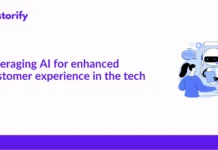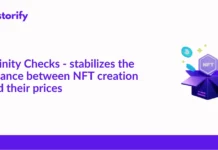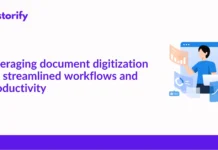Technological advancements of the past few decades have made it possible to overcome the barriers of space that have previously separated us. It has also enabled us to do it much faster than ever before. And this fits right in with our way of life in the 21st century. We do a lot, so we need many services and tools, and we need them fast. This is felt very strongly when it comes to business and data. The constant need to deal with high-quality data in business has led to the emergence of data as a service. It is a concept of data management that allows ensuring the availability and speed of data products for businesses in need.
Using the virtual space
The virtual world nowadays is pretty much as real as the tangible world all around us. Many of us spend a lot of our time and do a lot of our work in this elusive space, located somewhere beyond the physical items we use to access it.
Of course, in a sense, the software and data we work on can sometimes be said to be located in the physical machines that we use. It can be stored in the hard drive of the computer or other physical storage units. However, most of the data available to be accessed is not in our items but in very many different servers that support the worldwide web.
The fact, that the virtual space that you have access to does not have to take up memory space on your devices is what led to the establishment of cloud computing and software as a service (SaaS) model. Very basically speaking, cloud computing means that you do not need to always have something with you to be able to use it whenever you need it. For example, SaaS allows you to get the software you need on-demand and leave it to be stored by the provider after you are done using it.
Data as a service (DaaS) is a further development of the concept of SaaS, where you can get the data you need on demand. It is quite similar to renting physical items when you need them, but virtual on-demand services have two big advantages which physical rental services lack.
Firstly, you can get virtual service on demand instantly and wherever you are. And secondly, virtual items can be used by many different users at the same time. This means that just because someone else has already demanded a software or dataset does not mean that you cannot also use it at the same time.
Benefits of data as a service
On demand services are the modern-day way to boost business efficiency. And when it comes to various data-related business needs, data as a service is certainly something to look into. To make it even more clear, here are a few benefits that utilizing data as a service could provide to the company looking for workable data management solutions.
1) Unlimited data in limited space. Normally, the more data we want to have, the more memory space it would take up. This would mean additional costs for storage facilities and staff to take care of it. But with DaaS we do not need to have something to be able to
\use it. We are able to use as much data as we need without figuring out how to store it.
2) Fast access wherever we are. Storing data on multiple devices might mean that a lot of time is spent on getting the particular datasets we need for particular devices. When all the data is in a cloud accessible from anywhere, we can get it fast no matter where we are.
3) No effort for maintenance. We have to maintain the devices we use to store data. But when we get our data on demand, all the tools and devices are maintained by the providers. This means fewer issues and headaches for us and more effort available to be directed elsewhere.
4) Lesser risk of downtime. Failures in one or some of our devices might make important data inaccessible for a prolonged period of time. The entire cloud infrastructure is highly unlikely to fail, meaning there is little risk of downtime or serious disruptions.
Free from the weight of the world
Today we move a lot, and we want to be free in our movement. That is why mobile phones are such an important part of our lives. They allow us to carry the entire world in our pockets without feeling its weight.
The same can be achieved with data for businesses. With data as a service, we do not have to carry the weight of all the costs and issues that go with storing and maintaining data. And we can still have access to the world of data on demand.













